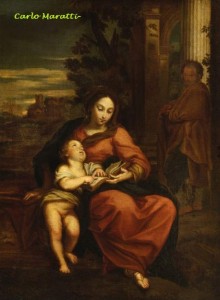I would like to offer my opinion on the recent blog entitled the “P-Word” which I found on the Commons. The desire to discuss my personal take on pedagogy comes from different sources mainly the type of subject I teach, foreign languages, in which methodology plays a central role. Secondly, the fact that I manage a blog called “pedagogy and podcasting” (two P-words!) and I conduct at my college workshops on pedagogy. With the word pedagogy we generally refer to the study of what it means to be an educator and the focus on the methods used for teaching. Foreign languages, for example, must be taught using some type of (possibly current) methodology otherwise the students learning outcomes will be severely impacted. When a faculty is observed, teaching is evaluated not on the fact that he/she speaks the language fluently, but most importantly that he/she knows how to teach it. For example, just because you are a native speaker of a certain language doesn’t necessarily mean you can teach it to others. Some of the things we look for are: Is the target language spoken at all times? Is it a student-centered classroom? Are drills, repetitions, or communicative strategies part of the methodology used? In the 1800, foreign languages were taught using the so called translation method then new approaches were introduced such as the audio-lingual method, the oral approach, the communicative approach, language immersion method, the Natural Approach, and Total Physical Response –just to name a few.
The importance to have a grasp of current teaching methodologies in my field is also proven by the fact that during job interviews potential candidates are usually asked to teach a language class (I had to do this several times during the job hunting process). The reality is that CUNY is mostly a teaching institution, (the course load provides support for this assertion), even though research and service also play a big part in tenure’s expectations. Apart from rare cases, I do not see many opportunities to share teaching tips and tools among colleagues. For the most part the focus seems to be on content but not so much on the how that content is being delivered. What strategies are used to maximize the learning of that specific subject? What are students actually learning? This, of course, took me a while to conceptualize but I do ask myself the following question: “How do I know what students are actually learning?” all of these questions offer a sort of explanation to the “art of teaching”, or good use of classroom time — you can call it pedagogy or methodology. If we go back to the origin of the word education, from the Latin ‘educere’, it meant to nurture, to preserve, to grow, to instruct and to provide, but it also meant to train and to raise. Pedagogy — in Greek pais/paidòs — means son, youngster and the verb ago translates to the word to conduct. From all of these definitions, the concept that emerges seems to indicate that education means to “get something” out of someone. In the 19thcentury, pedagogy was equated to an applied science, as a discipline with scientific methods and processes, it was no longer seen as purely metaphysical knowledge but it became a critical discipline that studied how knowledge is learned.
Nowadays we are more concerned with establishing parameters, assessment, individualizing objectives and learning goals: in other words students should all reach in the end the same results. Has this evolution of parameters lead to an improved quality of learning? This is the 100 million dollar question ! The point is that we need to have these discussions and exchanges more often. In the blog I also read that the most important things are learned outside of class, I do not dispute that, and I don’t know if this is always the case, but as an educator I am concerned of what happens inside the classroom. Perhaps if the teaching is successful the rest, the life’s lessons, happens by osmosis. I would like to advocate that CUNY’s graduate programs develop specific courses that place methodology at the center, or at least, make it a part of graduate students’ professional preparation. When I ask my colleagues who teach history, biology or art about their pedagogical training, they tell me that this was never part of their graduate academic journey. I think that this is a big gap of graduate education and that the current job market reality is not reflected in the preparation of language instructors, at least this is what I see in my field. The chances that a graduate student will end up teaching literature courses in a research institution are very slim, this means that language teaching will become the bread and butter of someone’s teaching profession. We simply do not prepare our professionals for this reality and we do a disservice to them and to students. I thank you dear colleague for sharing your thoughts with us, and for bringing to light the P-word, which is not a bad word, or a strange senseless word, but a word that needs to be brought out of the cave and taken to the floor for discussion. I hope that your blog will make people want to know more about the art of teaching, and I believe it has. I think that the pedagogical challenges faced by FLs can be applied also to other disciplines. I would like close with this quote “The art of teaching is the art of assisting discovery.” [Mark Van Doren]
 Carlo Maratti, (1625-1713) ” The Virgin teaching the infant Christ how to read”
Carlo Maratti, (1625-1713) ” The Virgin teaching the infant Christ how to read”







